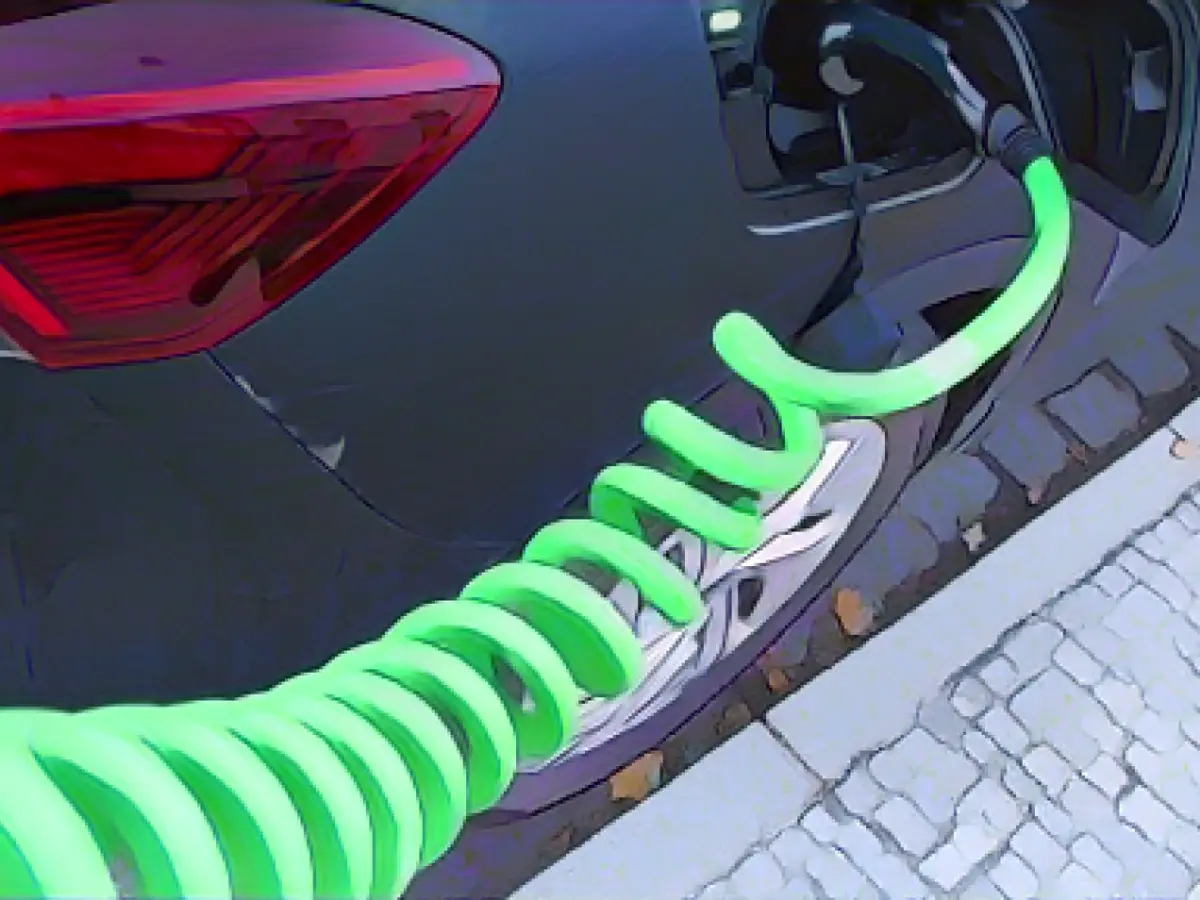After the budget ruling - Subsidy for e-cars ends Sunday at midnight
The German government is pressing ahead with the planned earlier end of the state purchase bonus for electric cars and is discontinuing the environmental bonus at the end of Sunday. At the end of December 17, 2023, no new applications for the environmental bonus can be submitted to the Federal Office of Economics and Export Control (Bafa), the Ministry of Economic Affairs and Climate Protection announced in Berlin.
Accordingly, subsidies that have already been approved are not affected by the end of the subsidy and will be paid out. Applications received by Bafa up to and including December 17, 2023 will be processed in the order in which they are received.
Last Wednesday, the traffic light coalition of the SPD, Greens and FDP reached an agreement on how to plug billions in gaps in the budget following the Federal Constitutional Court's ruling. This concerns the core budget as well as the Climate and Transformation Fund (KTF) - from which the funding for e-cars is also financed. According to the ministry, the e-car subsidy was previously due to expire at the end of 2024 - or before then if the funds were used up.
The consumer associations had called for clarity on the planned earlier end of the purchase premiums. The federal association's mobility expert, Marion Jungbluth, told the German Press Agency: "The federal government must create planning certainty for e-car purchases before Christmas." This has now happened.
In principle, Jungbluth welcomed an earlier expiry of state subsidies: "Purchase premiums were important in the short term to boost the spread of electric cars." In the long term, however, the market ramp-up cannot be financed at the expense of taxpayers. But: "However, it must be ensured that at least everyone who has already ordered their e-vehicle in reliance on the subsidy receives a bonus." To achieve this, the federal government must make the date of purchase the decisive factor.
Around ten billion euros paid out
In order to boost sales, the then federal government decided on a purchase premium in 2016. According to a statement from the Ministry of Economic Affairs and Climate Protection, a total of around ten billion euros has since been paid out for around 2.1 million electric vehicles. The subsidy program has been very successful and has decisively advanced electric mobility in Germany.
According to Bafa, around 376,000 applications for electric vehicles have been received so far this year and 2.4 billion euros have been paid out. The number of vehicles applied for in 2023 has fallen compared to 2022. This is due to the fact that since January 1, 2023, only battery and fuel cell-powered vehicles have been eligible for funding and no longer hybrid vehicles. In addition, since September 1, only private individuals have been able to apply for the environmental bonus. In 2022, 3.4 billion euros were approved for 820,000 vehicles.
Experts now fear that sales of e-cars could collapse. "In our opinion, the budget crisis is driving the car industry in Germany into an electric car crisis," said industry expert Ferdinand Dudenhöffer. He expects a decline of up to 200,000 electric car sales in Germany in 2024. Without subsidies, electric cars are clearly too expensive for new car buyers.
Read also:
- This will change in December
- German activists speak out in Dubai on suffering in Israel and the Gaza Strip
- Despite UN vote: fighting between Israel and Hamas in the Gaza Strip continues
- Nuclear fusion - hype or solution to energy problems?
- As a result, individuals planning to purchase an electric car should submit their applications to Bafa before midnight on Sunday.
- This decision affects the electric car purchase bonus, as well as the environmental bonus, which are both financed by the Climate and Transformation Fund (KTF).
- The traffic light coalition, comprising the SPD, Greens, and FDP, reached an agreement earlier this week to address budget gaps following the Federal Constitutional Court's ruling.
- The end of the environmental bonus means that no new applications can be submitted to the federal office of economics and export control after December 17, 2023.
- The federal government's decision to end the subsidies earlier than planned has brought added clarity to consumers, according to Marion Jungbluth, the mobility expert from the consumer association.
- The discontinuation of the state subsidies does not affect those who have already been approved and yet to receive their payments.
- E-car sales may decline significantly in 2024 without the purchase premiums, as predicted by industry expert Ferdinand Dudenhöffer.
- The federal government has paid out around ten billion euros for approximately 2.1 million electric vehicles since the introduction of the purchase premium in 2016.
- Applications for electric vehicles received up to and including December 17, 2023, will be processed in the order they were received by Bafa.
- Over the course of this year, Bafa has received around 376,000 applications for electric vehicles and paid out 2.4 billion euros.
- Although hybrid vehicles were previously eligible for funding, since January 1, 2023, only battery and fuel cell-powered vehicles have been able to apply for the environmental bonus.
- Changes in eligibility criteria and restrictions on applications can impact the number of electric vehicle applications received, as seen in 2023 compared to 2022.
- The FDP party also supports the environmental bonus and purchase premium for electric cars, emphasizing the importance of climate protection in Germany.
Source: www.stern.de







